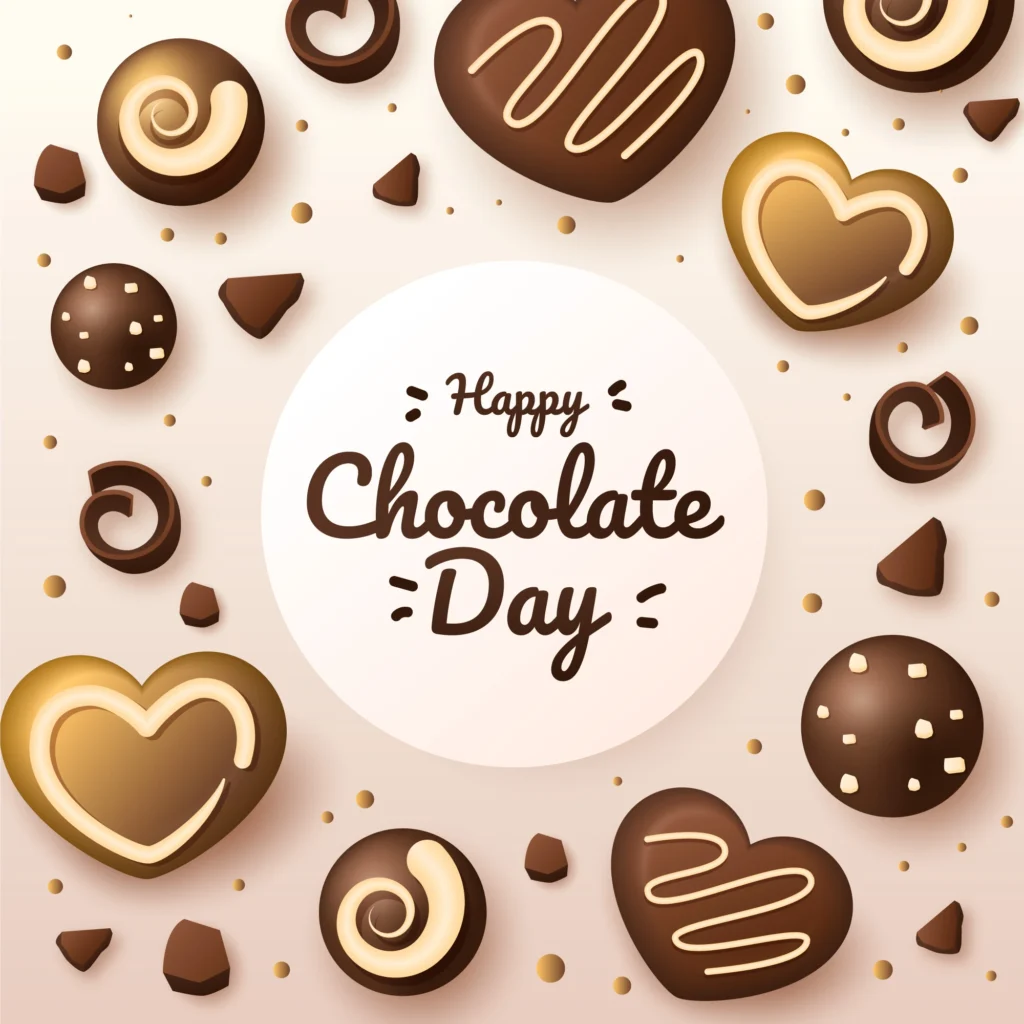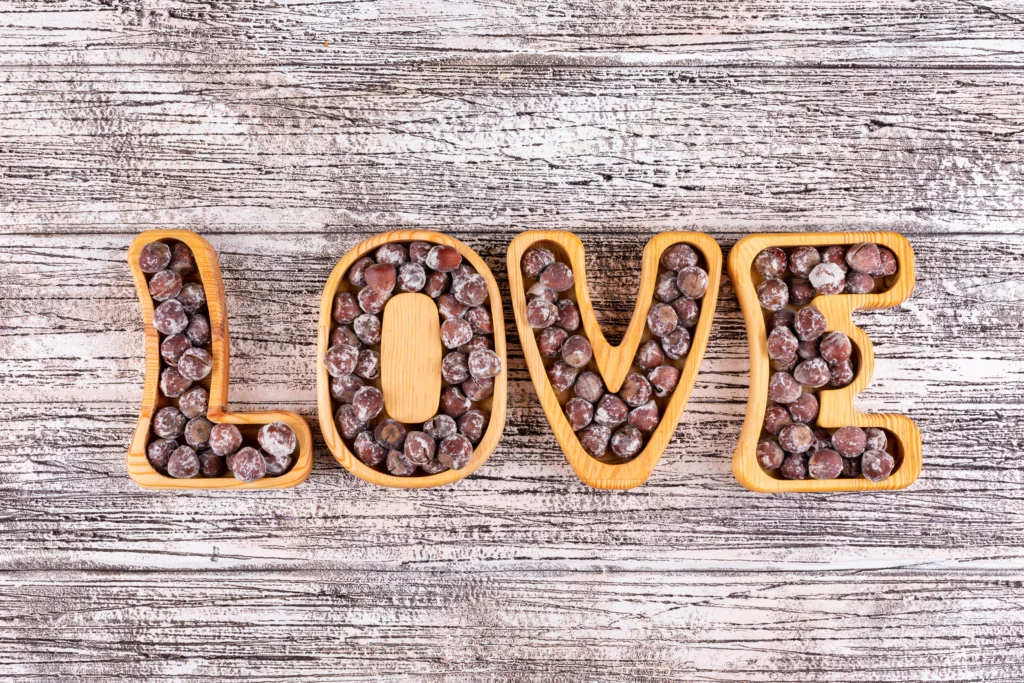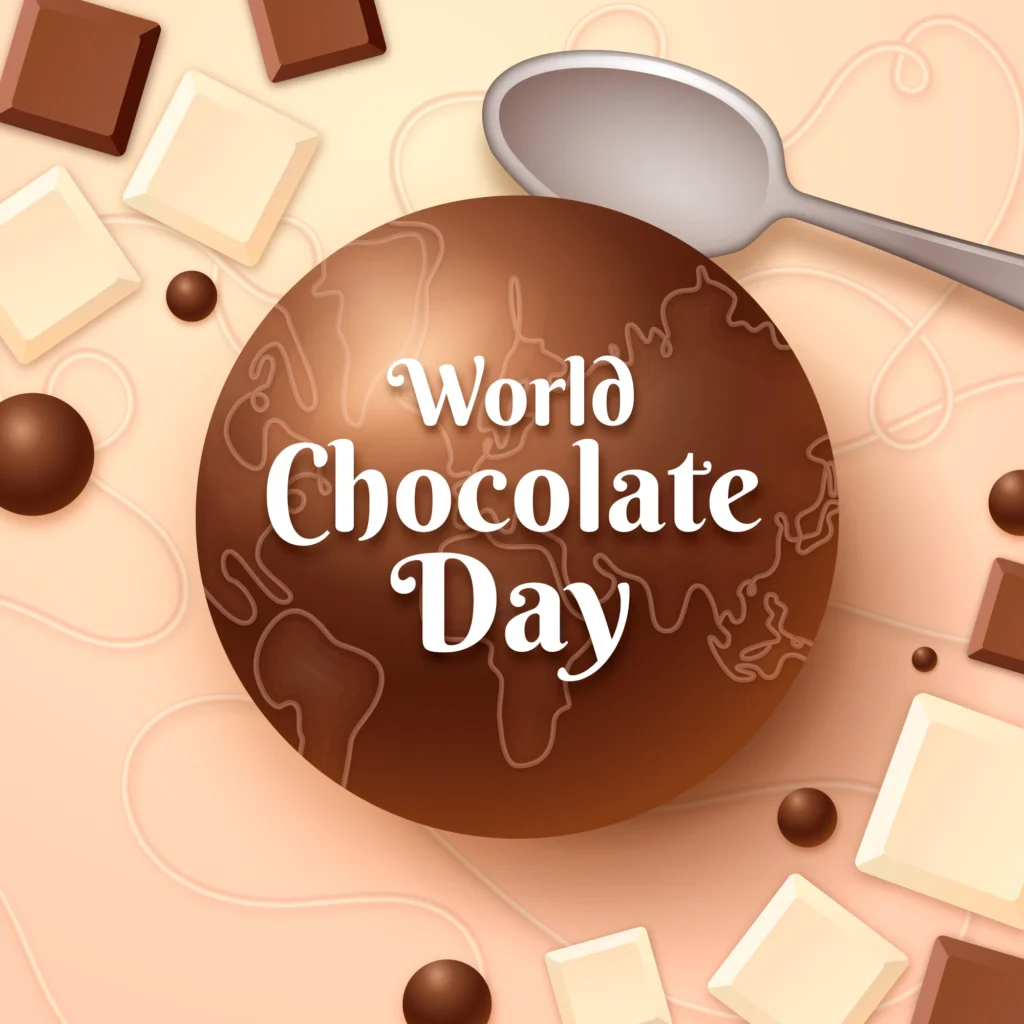Every year on July 7th, people around the globe come together to celebrate one of the world’s most beloved treats: chocolate. World Chocolate Day is a joyous tribute to the rich, decadent, and endlessly versatile creation that has captured hearts and taste buds for centuries. Whether it’s enjoyed as a velvety bar, a warm cup of cocoa, or an intricate gourmet dessert, chocolate holds a special place in our lives. But this day isn’t just about indulgence—it’s also an opportunity to explore the deep cultural, historical, and even health-related aspects of chocolate.
From its ancient roots in Mesoamerica to its modern evolution into an international symbol of comfort and luxury, chocolate has a fascinating story. This article takes you on a journey through its past, suggests fun ways to join the festivities, highlights its surprising health benefits, and explores how it’s cherished in cultures across the globe. Let’s dive into the delicious world of chocolate and see why this day deserves to be marked on every calendar.

The History of Chocolate: From Sacred Bean to Global Delight
The origins of chocolate trace back over 3,000 years to the ancient Olmec civilization in Mesoamerica. Later, the Mayans and Aztecs revered cacao as a sacred crop. Cacao beans were not only used to make a bitter ceremonial drink but also served as a form of currency. The Aztecs even believed chocolate was a gift from the god Quetzalcoatl and considered it an aphrodisiac.
It wasn’t until the 16th century that chocolate reached Europe, thanks to Spanish explorers. Initially consumed as a spicy, unsweetened drink, it quickly evolved when sugar and milk were added, creating the smooth, sweet versions we know today. By the 19th century, innovations in processing made chocolate more accessible to the masses. Companies like Cadbury, Nestlé, and Lindt began producing chocolate on a large scale, transforming it into the global commodity it is today.
World Chocolate Day on July 7 is said to commemorate the day chocolate was introduced to Europe in 1550. What started as a sacred ritual has become a universal symbol of love, comfort, and celebration.

Creative and Delicious Ways to Celebrate World Chocolate Day
World Chocolate Day is the perfect excuse to enjoy your favorite chocolate treats—or to try something entirely new. There are countless ways to celebrate, from casual indulgence to creative experiences for the whole family.
- Bake something special: Whip up a batch of gooey brownies, rich chocolate cake, or even vegan chocolate mousse. It’s a great time to experiment with different types of chocolate, from dark and intense to white and sweet.
- Host a chocolate tasting: Invite friends or family for a tasting session. Include a variety of chocolates—single-origin dark chocolates, filled bonbons, chocolate-covered fruits, and more. Pair them with wine, coffee, or tea for an elevated experience.
- Explore local chocolatiers: Support small businesses and artisanal makers by visiting a chocolate shop or café. You might discover new flavors, textures, or ethical brands that prioritize sustainability and fair trade.
- Try a chocolate-themed DIY activity: From chocolate facials and scrubs to crafts and hot cocoa bombs, there are many fun, hands-on ways to involve kids and adults alike.
- Share the joy on social media: Use hashtags like #WorldChocolateDay or #ChocolateLoversUnite to post your favorite recipes, creations, or even memories involving chocolate.
Whether it’s a solo treat or a shared experience, the joy of chocolate brings people together in the sweetest way possible.
Chocolate and Health: The Sweet Side of Nutrition
While chocolate is often associated with indulgence, science shows that it also comes with several potential health benefits—particularly when consumed in moderation and in its dark chocolate form.
- Antioxidant Powerhouse: Dark chocolate is rich in flavonoids, particularly epicatechin, which help fight free radicals and reduce oxidative stress. These compounds may lower the risk of certain diseases, including heart disease.
- Heart Health: Studies suggest that moderate dark chocolate consumption may improve blood flow, lower blood pressure, and reduce the risk of cardiovascular issues.
- Brain Booster: Chocolate may also enhance cognitive function. The flavonoids in chocolate can improve memory and focus by increasing blood flow to the brain.
- Mood Enhancer: Chocolate triggers the release of endorphins and serotonin—neurotransmitters linked to happiness and relaxation. This explains why many people turn to chocolate as a comfort food.
- Skin Benefits: Certain compounds in chocolate, especially those in raw cacao, may offer skin protection from sun damage and improve skin hydration.
It’s important to choose high-quality chocolate with a high cocoa content (at least 70%) and minimal added sugars. Moderation is key, but it’s good to know that chocolate can be a delicious part of a healthy lifestyle.

Chocolate Around the World: A Cultural and Culinary Phenomenon
Chocolate has become a global icon, but each country has its own unique relationship with it. From production to consumption, chocolate plays a significant role in both culinary traditions and cultural rituals around the world.
- Switzerland is known for its creamy, smooth milk chocolates, and its citizens are among the world’s top consumers per capita.
- Belgium is famous for its master chocolatiers and pralines, often made with intricate craftsmanship and rich fillings.
- In Mexico, chocolate remains a sacred ingredient, particularly in dishes like mole poblano, where it’s combined with chili and spices for a complex, savory flavor.
- In Ghana and Ivory Coast, two of the largest cacao producers in the world, chocolate is both an economic engine and a symbol of cultural pride.
- Japan has embraced chocolate in unique and surprising ways—think matcha-infused bars, sake-filled truffles, and elaborate Valentine’s Day traditions.
These diverse traditions showcase chocolate not just as a treat but as a global connector. On World Chocolate Day, it’s a great opportunity to sample international flavors or support ethically sourced chocolate that gives back to the communities that grow it.
Conclusion
World Chocolate Day is more than just a celebration of taste—it’s a moment to reflect on chocolate’s deep cultural roots, evolving culinary expressions, and even its role in our well-being. From the ancient cacao rituals of the Mayans to the exquisite artistry of modern chocolatiers, chocolate’s journey is rich with flavor and meaning.
So whether you’re indulging in your favorite bar, trying out a new recipe, or learning about the origins of your favorite sweet, let July 7 be a day to celebrate, savor, and share. Because in a world full of chaos and change, sometimes all we need is a little bit of chocolate.